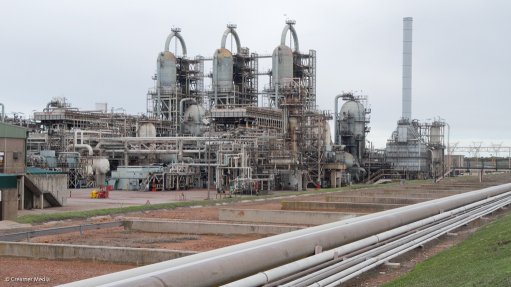The UK signs trade continuity agreement with five African countries as Brexit nears
At the end of last month, the UK signed a trade continuity agreement with countries from Eastern and Southern Africa. The countries concerned are the Comoros, Madagascar, Mauritius, Seychelles and Zimbabwe. These countries had, in 2009, signed an Economic Partnership Agreement (EPA) with the European Union (EU). At that time, the UK had been a member of the EU, but is currently in the process of leaving the bloc.
The trade continuity agreement replicates, as far as possible, the effects of the EPA and forms part of Britain’s preparations to leave the EU, popularly called Brexit. The new agreement will ensure that trade between the UK and the African countries concerned will not be disrupted by Brexit. It will permit the African countries to continue tariff-free exports to the UK, while seeing them phase out their tariffs on most British exports, over a number of years. It provides for better (preferential) conditions of trade than trading on World Trade Organisation terms would.
Trade between Britain and the five African countries was worth £1.5-billion in 2017. Using current trade flows as a base, the new agreement could provide savings of £30-million in tariffs for fish and meat exporters in the five African countries, compared with the situation that would have eventuated if the agreement had not been signed. The savings for clothing manufacturers in the five countries could be more than £10-million a year and for sugar exporters, some £8-million. As for the UK, British consumers will continue to benefit from wider choices and lower prices.
“The continuity agreement . . . marks our commitment to help developing countries increase trade and boost economies both across Africa and the UK,” affirmed British Trade Minister George Hollingbery, who signed the agreement on behalf of the UK. “The agreement will allow businesses in Eastern and Southern Africa to continue trading with the UK without any tariffs and lays the foundations for our ambitious ‘trade for development’ agenda. Africa’s long-term success matters to the UK, which is why we are investing in, and partnering with, African nations for our mutual benefit.”
“[The] agreement will help keep trade between the UK and nations in Eastern and Southern Africa well on track, providing continuity for businesses, consumers and exporters as the UK prepares to leave the EU,” pointed out UK Trade Commissioner for Africa Emma Wade-Smith. “This deal forms part of the UK government’s wider commitment to supporting developing nations and emerging economies worldwide and across Africa. Providing continuity of the trading arrangements with our trading partners will help sustain jobs and further strengthen trade and investment ties between the UK and nations of Eastern and Southern Africa.”
One of the African companies expected to benefit from the agreement is Mauritian enterprise Princes Tuna. “Princes Tuna Mauritius warmly welcomes this agreement as the UK is the largest market for the tuna products that we manufacture,” said company MD Abdulla Elahee Doomun. “Ensuring there is frictionless trade is critical to our long-term business success and to supporting over 4 000 direct jobs in our two factories, as well as many other Mauritian businesses that provide us with goods and services.”
The trade continuity agreement between the UK and the five African countries will come into effect either in January 2021, when the expected Brexit implementation period ends, or on March 29, if no withdrawal agreement is reached between the UK and the EU – popularly known as ‘No Deal’. London regards the trade continuity agreement as forming part of its support to developing countries through the encouragement of trade, which will grow economies, increase employment, increase incomes, reduce poverty and eventually end dependence on foreign aid.
Comments
Press Office
Announcements
What's On
Subscribe to improve your user experience...
Option 1 (equivalent of R125 a month):
Receive a weekly copy of Creamer Media's Engineering News & Mining Weekly magazine
(print copy for those in South Africa and e-magazine for those outside of South Africa)
Receive daily email newsletters
Access to full search results
Access archive of magazine back copies
Access to Projects in Progress
Access to ONE Research Report of your choice in PDF format
Option 2 (equivalent of R375 a month):
All benefits from Option 1
PLUS
Access to Creamer Media's Research Channel Africa for ALL Research Reports, in PDF format, on various industrial and mining sectors
including Electricity; Water; Energy Transition; Hydrogen; Roads, Rail and Ports; Coal; Gold; Platinum; Battery Metals; etc.
Already a subscriber?
Forgotten your password?
Receive weekly copy of Creamer Media's Engineering News & Mining Weekly magazine (print copy for those in South Africa and e-magazine for those outside of South Africa)
➕
Recieve daily email newsletters
➕
Access to full search results
➕
Access archive of magazine back copies
➕
Access to Projects in Progress
➕
Access to ONE Research Report of your choice in PDF format
RESEARCH CHANNEL AFRICA
R4500 (equivalent of R375 a month)
SUBSCRIBEAll benefits from Option 1
➕
Access to Creamer Media's Research Channel Africa for ALL Research Reports on various industrial and mining sectors, in PDF format, including on:
Electricity
➕
Water
➕
Energy Transition
➕
Hydrogen
➕
Roads, Rail and Ports
➕
Coal
➕
Gold
➕
Platinum
➕
Battery Metals
➕
etc.
Receive all benefits from Option 1 or Option 2 delivered to numerous people at your company
➕
Multiple User names and Passwords for simultaneous log-ins
➕
Intranet integration access to all in your organisation


















